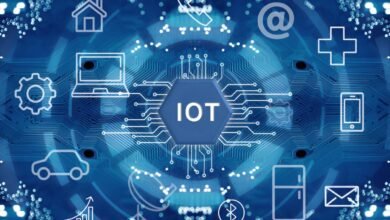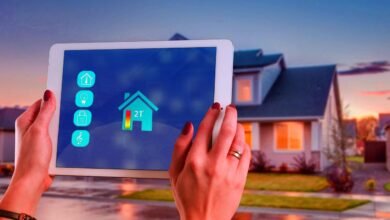Best Smart Home Systems for German Households in 2025
Choosing the Best Smart Home Systems for German Households requires an understanding of the available technologies, compatibility with European standards, and local preferences for privacy and sustainability.

As we step deeper into 2025, the concept of a smart home has moved from futuristic fantasy to everyday reality, especially in tech-savvy Germany. Homeowners are increasingly investing in smart home systems to enhance comfort, security, energy efficiency, and convenience. Choosing the Best Smart Home Systems for German Households requires an understanding of the available technologies, compatibility with European standards, and local preferences for privacy and sustainability.
This guide explores the top smart home systems ideal for German residences in 2025, taking into account integration capabilities, price-performance ratio, and user experience. Whether you live in a modern apartment in Berlin or a traditional house in Bavaria, there’s a smart home solution tailored to your lifestyle.
Why Smart Home Systems Are Gaining Popularity in Germany
Germany, known for its engineering excellence and environmental consciousness, has embraced smart home technology at a rapid pace. The growing interest in energy efficiency, home automation, and IoT (Internet of Things) integration has made smart systems not only desirable but essential.
The best smart home systems for German households often emphasize features like
- Energy-saving automation
- Remote monitoring and control
- Advanced security solutions
- Compatibility with smart meters and solar panels
- Voice control with multilingual support
Smart homes help reduce carbon footprints, lower utility bills, and provide unmatched convenience—aligning perfectly with German values.
Key Features to Consider When Choosing a Smart Home System
When evaluating the best smart home systems for German households, several crucial factors should guide your decision:
1. Interoperability
German households often prefer systems that support a wide range of devices across various manufacturers. Systems using open protocols like Zigbee, Z-Wave, or Matter ensure better compatibility.
2. Data Privacy and Security
With strict GDPR regulations, data privacy is paramount. Look for systems that offer end-to-end encryption and local data processing.
3. Ease of Use
A user-friendly interface and seamless app integration are vital. Germans appreciate intuitive systems that don’t require extensive tech know-how.
4. Energy Management
Smart thermostats, lighting, and appliance control systems that optimize energy consumption are highly valued.
5. Voice Assistant Integration
Support for popular assistants like Amazon Alexa, Google Assistant, and Apple Siri is a must for hands-free control.
Top Smart Home Systems for German Households in 2025
1. Bosch Smart Home
As a homegrown brand, Bosch holds a trusted reputation in German markets. Their smart home system integrates heating, lighting, security, and climate control in one cohesive platform.
Key Features:
- Designed specifically for German homes
- Seamless integration with Bosch appliances
- Complies with stringent EU data privacy laws
- Smart camera, smoke detector, and shutter control
Why It’s Ideal for Germany: Bosch’s local support, robust quality, and eco-conscious features make it a top contender among the Best Smart Home Systems for German Households.
2. Homematic IP
Popular for its flexibility and extensive device portfolio, Homematic IP offers both wired and wireless solutions ideal for retrofitting older homes or new builds.
Key Features:
- Operates entirely on German servers (cloud or local)
- Wide range of compatible sensors and actuators
- High-level security with AES encryption
Why It’s Ideal for Germany: It caters to the DIY market and professional installers, offering unmatched customization and privacy.
3. Apple HomeKit
Apple HomeKit appeals to users deeply embedded in the Apple ecosystem. While it has a limited device range compared to competitors, its privacy and ease of use stand out.
Key Features:
- Strong focus on privacy and user data protection
- Native integration with iOS devices
- Supports automation scenes and remote access via HomePod
Why It’s Ideal for Germany: Germany’s privacy-conscious consumers value Apple’s robust data protection policies.
4. Amazon Alexa Smart Home Ecosystem
With its growing range of Echo devices and third-party integrations, Amazon offers a flexible and scalable solution.
Key Features:
- Large ecosystem of compatible devices
- Easy setup with voice commands
- Regular updates and expanding device compatibility
Why It’s Ideal for Germany: Affordable entry points and compatibility with German service providers make it an accessible choice.
5. Google Nest
Google Nest provides a sleek and intelligent home automation experience. It excels in predictive automation and energy-saving features.
Key Features:
- Advanced AI-powered automation
- Integration with Google Assistant
- Smart thermostats, cameras, and doorbells
Why It’s Ideal for Germany: Ideal for tech-savvy users who prioritize predictive intelligence and smooth integration.
6. Eve Systems
Eve is a German company focusing on privacy-first smart home devices designed to work exclusively with Apple HomeKit.
Key Features:
- Local data processing (no cloud dependency)
- Supports Thread and Matter
- Elegant design with German engineering
Why It’s Ideal for Germany: Eve aligns with German values of privacy, sustainability, and high-quality design.
7. Samsung SmartThings
Samsung’s SmartThings platform is one of the most comprehensive smart home ecosystems available today.
Key Features:
- Supports Zigbee, Z-Wave, and Matter
- Broad compatibility across brands
- Integration with Samsung appliances
Why It’s Ideal for Germany: Its vast compatibility and robust ecosystem appeal to users wanting an all-in-one solution.
Integrating Smart Home Systems with German Energy Initiatives
Germany’s commitment to renewable energy (Energiewende) means that the best smart home systems for German households are those that integrate well with solar panels, smart meters, and battery storage.
Many smart systems now offer:
- Real-time energy monitoring
- Automated peak load management
- EV charger integration
- Compatibility with solar inverters and storage systems
These features not only support sustainability but also reduce energy costs significantly over time.
Challenges to Consider When Setting Up a Smart Home in Germany
Despite the benefits, setting up a smart home in Germany comes with a few hurdles:
- Regulatory compliance: Devices must meet EU standards.
- Language support: Not all devices support German interfaces or voice recognition.
- Infrastructure: Older homes may require rewiring or enhanced Wi-Fi coverage.
Choosing systems with local support and German-language documentation can help mitigate these issues.
Conclusion: Choosing the Right System for Your Needs
The best smart home systems for German households in 2025 offer more than just automation—they provide a smarter, more sustainable, and more secure way to live. Whether you prioritize privacy, energy efficiency, or seamless integration, there is a system to suit your needs.
To summarize:
- For privacy and local support, Eve Systems and Homematic IP shine.
- For broad device compatibility, Samsung SmartThings and Amazon Alexa are excellent.
- For Apple enthusiasts, Apple HomeKit and Eve offer unmatched synergy.
Whichever system you choose, make sure it aligns with your home’s infrastructure, personal preferences, and future scalability. As Germany continues to lead the way in smart living and green technology, investing in a smart home system is not just a trend—it’s a forward-thinking lifestyle choice.











